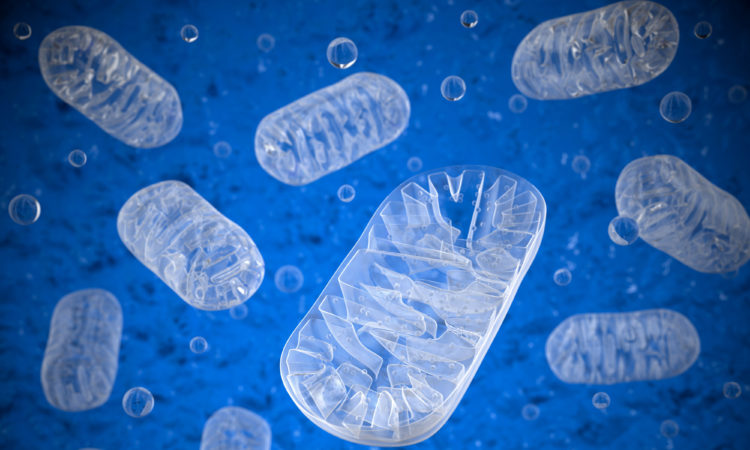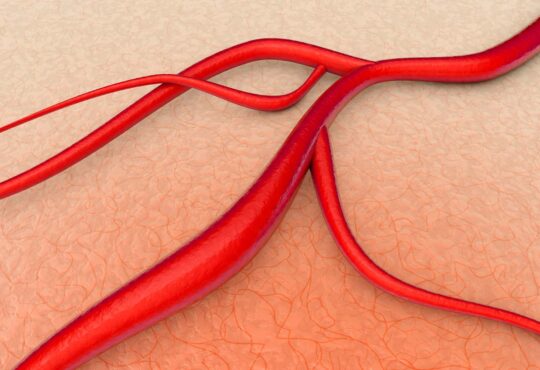
HINT: It’s NOT caffeine.
Or sugar.
Or ANY kind of “energy drink” – or bar.
If you want to boost your productivity and stay awake, feeling alert all day . . .
Not to mention hold on to feeling youthful even as the years stack up behind you . . .
Support, strengthen, and multiply your mitochondria.
What are Mitochondria?
They’re tiny structures or organelles within almost every cell of your body. Your cells contain thousands of them.
Your heart cells hold the most mitochondria because your heart cells obviously need the most energy.
They produce 90% of the energy – in the form of ATP – your cells need.
If all your mitochondria disappeared, you’d die immediately, because all your cells would totally stop functioning.
I’m focusing on mitochondria for energy because that’s their most important role, but they’re multifunctional. They also help process and recycle waste products. And they play a role in signaling old and damaged cells to kill themselves.
Besides the heart, the organ with the most mitochondria in the brain.
There’s not a lot of research regarding any direct connection between mitochondria and cognitive performance. However, it makes sense to believe that when you benefit your mitochondria, you’re also speeding up your thinking and overall brain function.
I can’t say you’ll raise your IQ, but you will probably use your natural brainpower more effectively.
After all, one proven way to improve brain function is to exercise regularly.
And exercise is also one proven way to make your mitochondria healthier.
Especially Intense Exercise
In one study, people 65-80 years old performed high-intensity interval training workouts. After three months, their mitochondrial function improved by 69%. And that was verified by muscle biopsies.
The act of moving your muscles forces them to demand more energy – more ATP – from the mitochondria within those cells.
You’re like a tough boss, demanding your employees work harder.
The wonderful thing is, when you expect more of your muscles – and yourself – you get it.
The oxidative stress of exercise damages your mitochondria just as the movement damages your muscle cells.
You become stronger because your body rebuilds those muscle cells, it makes them stronger.
And it does the same when it repairs the damaged mitochondria.
Your body responds to stress by rebuilding itself – becoming stronger . . . one workout, one recovery period, at a time.
Existing mitochondria become more efficient at turning oxygen into ATP.
This efficiency – and the new mitochondria – carry over into your normal hours when you’re not exercising.
As the mitochondria in your body increase and improve, that naturally higher energy becomes your “new normal.”
When you’re at work you might still count down the minutes to 5:00, but only because you’d rather play ball with your children, weed your garden or run for an hour.
But both multiplying and repairing mitochondria require magnesium.
Eat More Magnesium
56% of Americans are deficient in this vital mineral.
But magnesium is required as a cofactor to make more mitochondria.
You find magnesium in:
* Dark green leafy vegetables (especially kale)
* Nuts (especially almonds and cashews)
* Dark chocolate (leave out the milk and sugar)
* Avocados
* Legumes (beans, chickpeas, peas, and soybeans)
* Tofu
* Seeds (especially flax, pumpkin, and chia)
* Some fatty fish such as salmon and halibut
* Bananas
* Whole grains, especially whole wheat and oats
Avoid Sugar and Simple, Refined Carbohydrates
Although they make you feel a short-term boost of energy, that’s not a sign you’re healthier or more energetic. It’s an illusion.
And those foods damage your mitochondria.
Try to Avoid Environmental Toxins
Glyphosphate, the ingredient in the herbicide RoundUp, heavy metals, and other toxins also chip away at the strength and health of your mitochondria.
Get 7-8 Hours of Sleep Every Night
It may seem obvious to recommend people who want more energy get more sleep . . .
But most Americans don’t sleep enough even though they complain about not having the energy they want.
Besides, sleep is not the inactive “rest” we think it is.
During sleep, your body is quite active repairing and rebuilding the damage done to it during the day.
That affects how well you feel and perform the next day – and your mitochondria play a major role.
Sleep is when you recover from exercise and all the other stresses you go through during the day.
You don’t need 7-8 hours of sleep to “rest” – you need 7-8 hours of sleep to fully repair, rebuild, and replenish your mitochondria.
Intermittent Fasting
This is where you go without food for (relatively) short periods of time. Me, on two days a week I eat only breakfast.
During the periods when you’d normally eat, but don’t, you’re forcing your body to produce energy under adverse circumstances.
Also, after you haven’t eaten for 16+ hours, your body begins to clean up accumulated waste and detritus. That includes damaged cells and mitochondria.
When you begin eating again, it creates new – youthful – cells and mitochondria.
Keep your mitochondria young, efficient, and numerous – and they will provide the energy to keep you young and vibrant.
https://www.youtube.com/watch?v=WWBCnVMoFZA
https://www.healthline.com/nutrition/10-foods-high-in-magnesium#section2
https://www.youtube.com/watch?v=WsMStXvlqoo
http://www.mrc-mbu.cam.ac.uk/what-are-mitochondria
https://www.youtube.com/watch?v=YrfjaOU_3VU







